Meet the Man Who Wants to Prevent Your Next Hangover
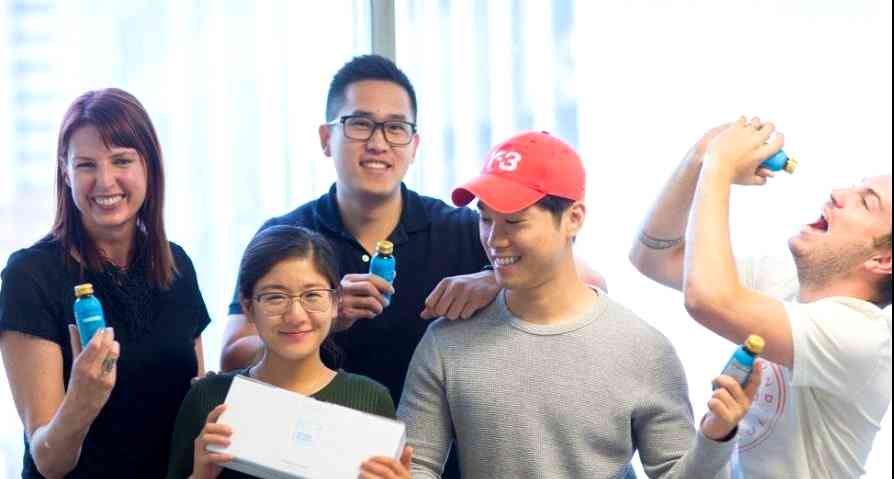
By Brian Barnes
October 20, 2017
Editor’s Note:
A few weeks ago, we were surprised to hear that someone managed to get an FDA compliant hangover cure to market, so we wrote about it. It’s called Morning Recovery. Since then, we’ve had the opportunity to sit down with one of the founders, Sisun Lee, for a drink in L.A.
Just one drink. But he did give us samples, which I’ve now tried — and it works.
I met Sisun near his office on Wilshire in Los Angeles around 4:00, hoping to nail down a happy hour somewhere close. We chose a rooftop bar across the street, ordered two Old Fashioneds, and got to chatting about Morning Recovery and the road that led Sisun to giving up a lucrative job at Tesla for a drink that cures hangovers.
Born and raised in Korea, Sisun moved to Toronto when he was just 9-years-old. He is a Canadian citizen and considers Toronto his home, having grown up there all through graduating from the University of Waterloo. From there, he moved to the Bay Area to start his fulltime job as a Product Manager at Facebook.
SUITED: So it was your trip back to Korea that kicked off this whole hangover cure path — what is it about the drinking industry in Korea that differs enough from the industry here in the States where they would have “cures” and we don’t?
LEE: Oh, there’s a lot. The craziest stat is that, according to WHO and alcohol-related professional journalism, the key statistical difference is in hard liquor consumption per capita, and every year Korea is number one, by the biggest margin, for the longest time.
SUITED: Wow.
LEE: WHO defines the drinking age for these statistics as anyone who is 15-years-old and older. On average, Koreans drink 14 liquor shots per week. It’s actually pretty fucked up if you think about it, and the U.S. is at about 3 or 4. What that tells you is that when you’re in Korea, people aren’t just drinking heavily when they’re partying.
Growing up in America, I noticed a lot of the binge drinking happens when you’re going out on the weekend, and it’s usually associated with some kind of partying. In Korea, this is like a daily thing. You would notice people during lunch drinking liquor with their food — not necessarily to get drunk, but that it’s almost ingrained to it. The key thing for them, in Korea, especially if you’re in the white-collar business jobs, everyday for dinner it’s very common for people to go out to dinner with other teams and then socialize by drinking even more.
So it’s a very heavy drinking culture, and the big thing is that they all have to wake up and go right back into work the next morning. So hangover is a bigger issue. Here, people who drink like that would usually be seen as almost alcoholics, over there it’s just a different lifestyle.
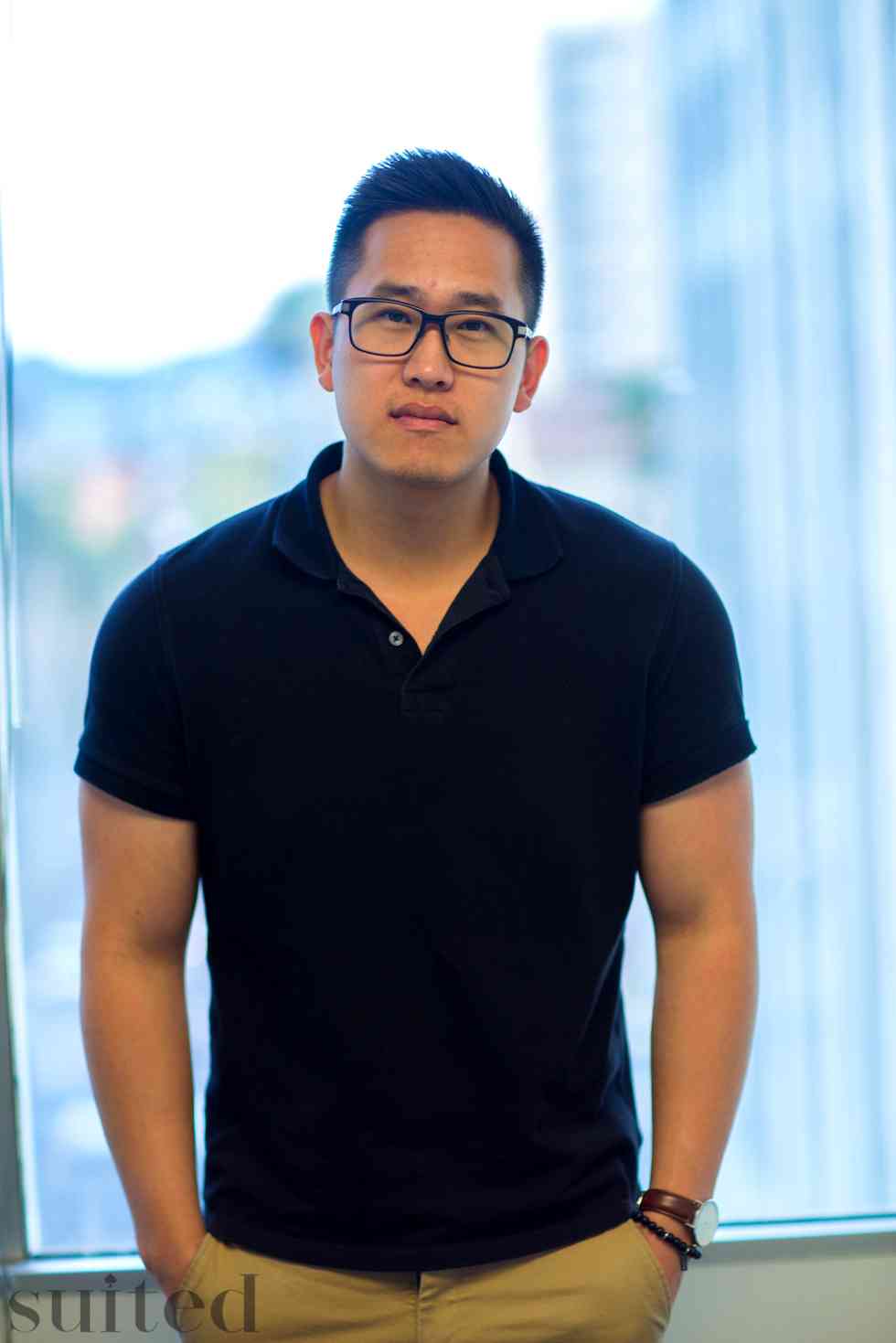
SUITED: How do you define a hangover?
LEE: A hangover is natural feedback from your body to let you know you’ve had too much, to slow down, and not have any more.
SUITED: So with Morning Recovery, and this is getting more into the science behind it, is it geared towards more hard liquor consumption, or does it work well for wine as well?
LEE: It doesn’t matter! It will work for any kind of alcohol. So basically, when I was in Korea recently I had my interest piqued, then I came home and started to do the research. When I first thought about these types of cures, the first thing I thought about was snakeoil. It can’t be true.
So I started doing lots of research, and there are a lot of white papers around it. There aren’t a lot of human clinical studies, but plenty have been done with rats. When I started reading them I got intrigued, and I wanted to learn more. The papers helped me understand that there actually can be a solution, especially the studies around DHM, which helps your body break down alcohol, which is a simplified way of explaining it. And the pioneering research recently on DHM has been done by a group of researchers here at UCLA.
This is when I was working at Tesla, with no intention of making this, distributing this. So I read their white papers — and my background, I studied nanotechnology engineering for three years so, reading white papers is simple for me. I reached out to them and they’ve been wanting to commercialize their ideas for a long time, and have tried with a few different partners which have failed. So when I reached out they were very receptive. And then that kind of helped us to work together and build samples.
So the science isn’t about what kind of alcohol you consume, but rather how your body’s natural response to breaking down alcohol works. We cared more about how to enhance that.
LEE: Absolutely. So the way to think about this is very simple: when you consume alcohol, alcohol in it’s purest form is known as ethanol, and then it becomes acetic acid which then get flushed out of your body. You pee it out, it has to leave your blood. But while it does it, the ethanol also turns into a toxin called acetaldehyde, it binds to your cells and causes the nausea and grogginess.
The idea is, when you consume alcohol, your body has natural ways of breaking it down. Your body creates enzymes to break it down. Some people don’t have these enzymes, or they have very little of them, which means they can’t drink alcohol and it’s extremely toxic to them. Our levels of enzymes differ. Maybe you produce more than I do, so you can drink a lot more than me and still be able to process the toxins faster. So we focus on speeding up those enzymes.
SUITED: Can you explain the difference between FDA Compliant and FDA Approved?
LEE: Absolutely. So, FDA Compliant means we can sell this as an over-the-counter supplement, and the rule is that you have to comply all the rules and guidelines from the FDA — you have to work with a factory that’s FDA registered, that’s essentially been tested by the FDA and verified that it is a factory capable of producing safe products. The second thing is the ingredients, that they’re all legal, that they follow actual daily amounts, as well has having a certificate to show where we’ve gotten the ingredients from.
For FDA Approval, from a drug perspective, is that this can actually be prescribed as a cure that doctors can give to you. So, the former is following a set of guidelines, and the latter is going through clinical trials.
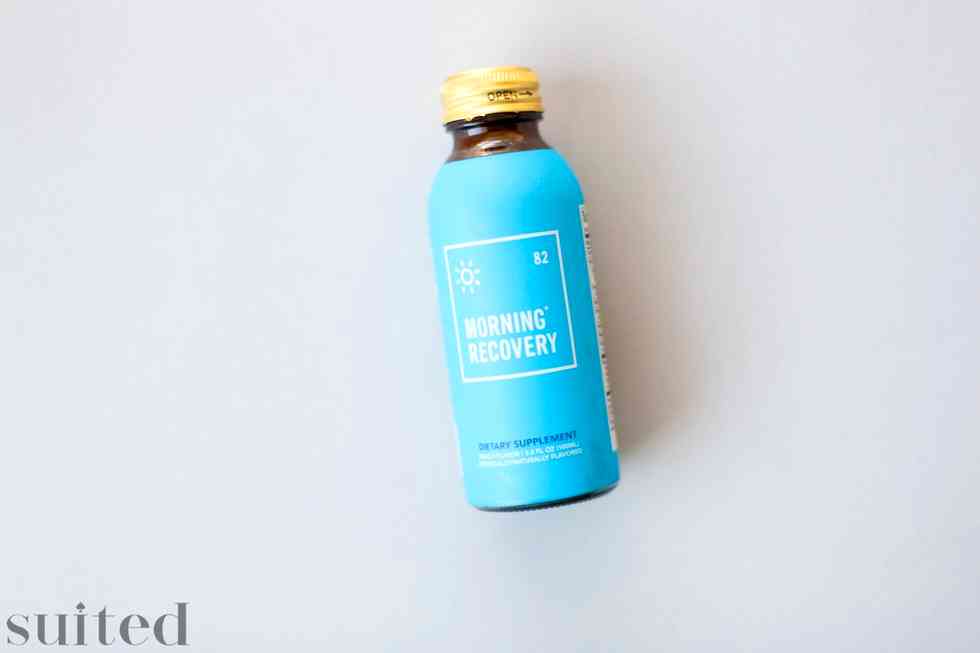
SUITED: Is that the goal? To become FDA Approved?
LEE: That’s the goal, absolutely. It’s way more expensive, but the good thing is that we’ve already conducted and finished our animal studies on rats — it’s a sensitive topic, but all drugs go through it. We are now at a stage where we can conduct human clinical studies at will, it’s all about timing for us though, when is the right time to do it?
We wanted to produce the first product because we wanted to get it to people in the fastest way possible because the product is already helping people. So once we build up brand awareness, people try it, we have return customers and we make revenue, that puts us in a better spot to, in parallel, do the clinical studies.
SUITED: When are you shipping?
LEE: We’re shipping! We already shipped all of our Indiegogo supporters, and if you go to our Facebook page called Morning Recovery Feedback, you can see all the feedback dated all the way back to the samples from February. It’s been very positive. To be honest, we didn’t have to do any of the crowdfunding campaigns, we raised $500k through an initial seed investment in the beginning and it was more of a platform to launch.
SUITED: So what are the next steps in the plan?
LEE: So we have 3 goals. We need to grow our brand awareness, selling directly to consumers. We had a goal of hitting a million dollars this year, and we actually just hit it. We’re growing fast. Second thing, on the operational side, we are tweaking the formulation. So for us, the formulation is something that we constantly tweak — and the other thing is form factor is going to change. Selling and shipping glass bottles is very heavy and expensive, so we’ll probably change to aluminum and make it even smaller.
A key component of our product is something called DHM, but it’s not something you can just get it extracted from an herb. How you purify it, how it’s soluble to the rest of the ingredients, all of this matters. So our research team is constantly working on a refined formula as well.
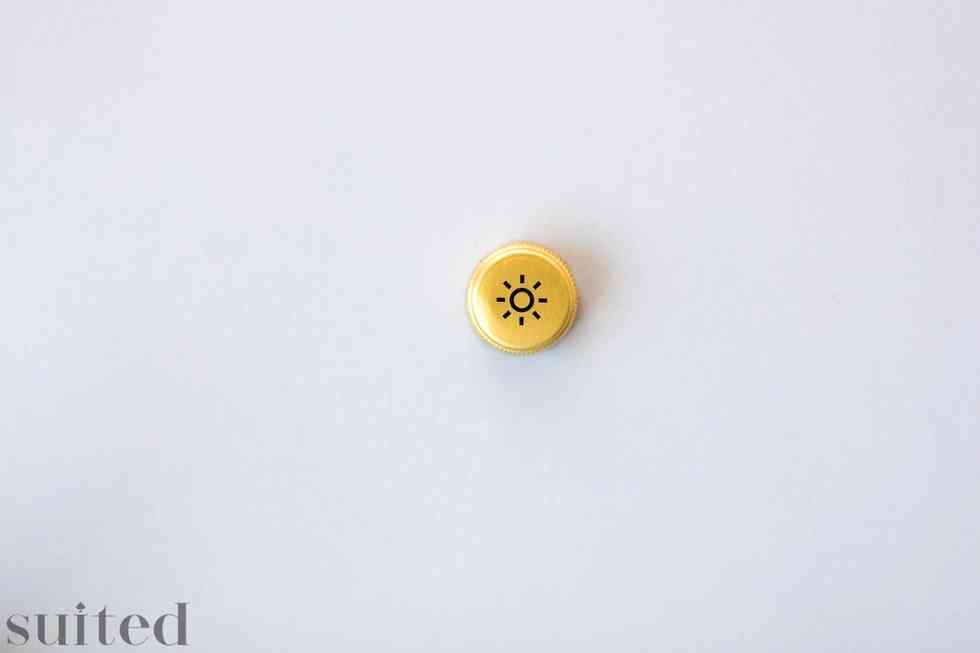
SUITED: So the new formula — it might come in something smaller than this?
LEE: Yep. I mean the form factor itself, if you consider the active ingredients, it could actually fit inside like two pills. The rest here is just water and flavors. In theory we could have just done a powder or pill, but our studies show that —
SUITED: People are more willing to drink something than they are to take a pill.
LEE: Exactly. And then the third thing is that we’ve started doing retail pilots here in LA as well.
SUITED: Do you have any influencers or partnerships?
LEE: We’re just starting. We have a lot of ideas, we’ve just been mainly growing organically right now. We did get really lucky and we launched this in baby steps. Initially we were called The Hangover Drink back in February when we built our first samples. This is something we were doing as a side project while I was still at Tesla and my partner was at Facebook. And we simply gave it away to colleagues at Facebook and Tesla. So like the first 100 testers were actually all there.
SUITED: Were you like, making it in your kitchen?
LEE: No! No, we were making it with different OEMs. We would give them the IP and ship them the ingredients. We didn’t have the ability to like, sterilize a bottle. We can’t just hand-make it. But it came like the product you see, but with no label. It was really sketchy. And word of mouth in Silicon Valley grew. People would talk about it to their friends, and then friends of friends, and we started to slowly have people reach out to us directly, calling us The Hangover Drink Guys, the Hangover Guys, asking where they could get the drink, that they wanted to buy it. That’s when we made a one-pager website where people could ask for samples. We were willing to mail you samples for free just for your feedback. Then one of our original angel investors posted our drink on something called Product Hunt — it’s like Reddit for new products and services for startups. So we get posted there and we became #3, and we were beating Apple and Microsoft’s new products and overnight we got over 10 thousand people asking for samples.
We had no idea that many people would want to try it. We couldn’t fulfill it, but we had 600 samples.
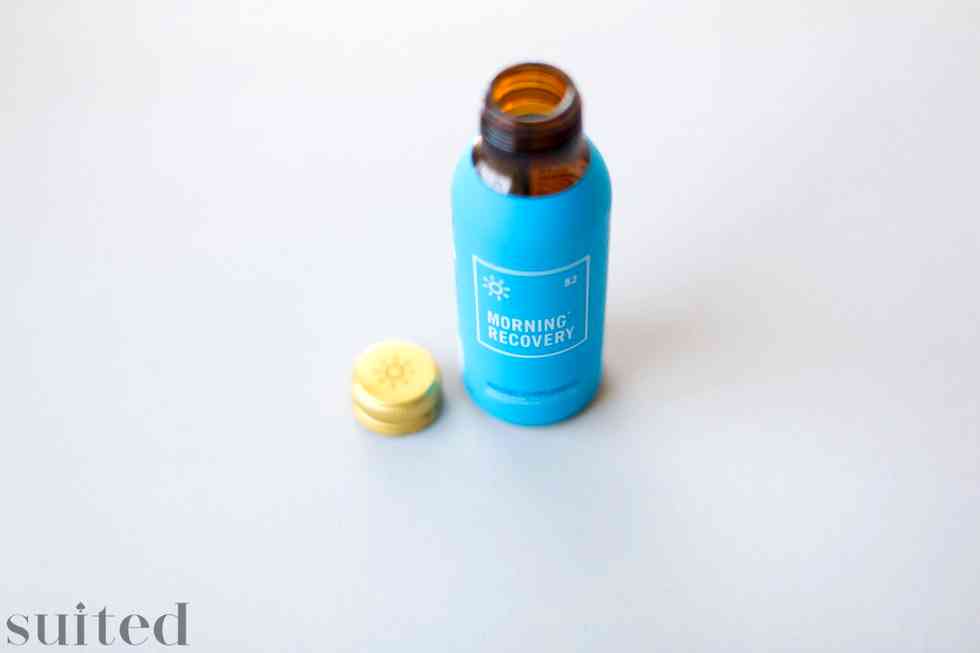
SUITED: Here’s the most hard-hitting question that I’ll ask.
LEE: Ok!
SUITED: Are you afraid that putting something out that’s so effective against hangovers is taking away the last natural incentive to not be a raging drunk during the week?
LEE: That’s a really great question. Honestly, in the beginning, I didn’t even think of it like that, because it was a side project. And we’ve grown to the point where it’s finally starting to hit us, because it does work so well. That’s a question people are asking and as we grow bigger, there will be more extreme cases like that.
So there are two ways we think about it. The first is like an analogy. From a functional perspective, if you think about reckless driving and how we have seatbelts, just because you wear a seatbelt that doesn’t mean you have an incentive to drive recklessly. And it’s all about the perception, because while we do believe that the best way to abstain from the negative effects of alcohol is to not drink altogether, our hypothesis is that alcohol sales will continue to grow and it’s not all that bad as long as you can control it, because people might not be alcoholics, but people also like to drink and have fun. If abstaining is the best way to avoid a hangover, coming up with an alternative solution also helps. With our product, it does help minimize lots of the negative effects of alcohol — and there are obviously much greater problems with alcohol like alcohol use disorders, but hangover itself is a minor but very frequent problem. On a net whole, we believe we’re net positive.
That being said, I think that perception is going to be very critical and it depends on the story we tell customers. If we position this with marketing, to give an example, of a bunch of people raging, I think that’s definitely going to develop that aura and perception so I think the right answer to you is that it’s a critical question to answer and I don’t think it’s going to be just one big thing we can do, it’s going to be a long list of what kind of messages do we tell our customers. So far, we don’t have a clear brand positioning right now because we are such a new company, so everything has been very neutral. If you go to our website you can’t really tell if this like a medicine or a party-er’s remedy vs. whatever you gravitate towards, but as we start to understand our customers and have a clear brand positioning it’s just going to come down to the explicit messaging.
SUITED: Is that infiltrating its way into the decision of which influencers you want to work with?
LEE: Absolutely.
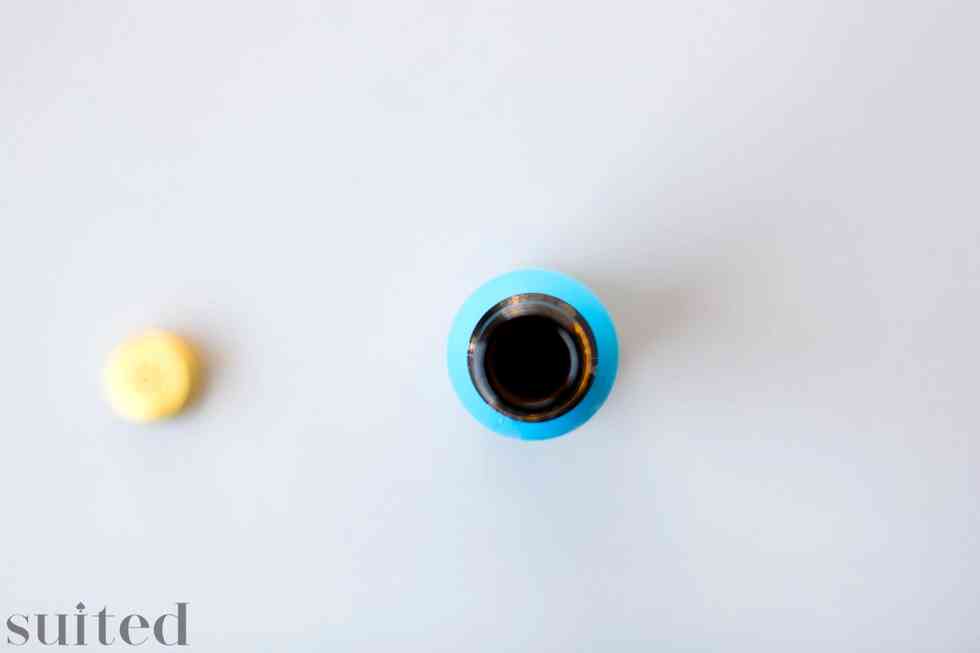
SUITED: Like someone like Scott Disick. He would be a huge get because he’s massively popular, but he’s also known for his alleged excessive alcohol consumption and stuff like that. It’s a tight path to navigate, right?
LEE: Right. We’re so young that generally just having a product management background, I would like to experiment with many things to get the data before we come to conclusions, but this is one of those things where it can hurt us if we experiment to us. Like, Lil Jon actually reached out to us, and said I want to try this at our party, so we shipped it to them. And what is Lil Jon famous for? His crunk music. Does that align well? I hope there’s a way to be positive around it without promoting excessive drinking.
SUITED: So when was the exact moment you decided to quit you job at Tesla?
LEE: It’s pretty amazing that it’s 2017 and hangover is still a thing. Humanity has been drinking for pretty much forever, right? Productivity loss in the U.S. is about $200 billion alone. Alcohol sales is the #1 in the beverage market, it’s bigger than water, it’s bigger than coffee. That’s U.S. alone. Globally it’s a $1+ trillion business.
So our thinking was: this is massive. Hangover is a byproduct of drinking, and it still hasn’t been solved. It hit us that the problem is right in your face, but there wasn’t a clear solution. It hit us that it was exciting enough.
And look, the goal isn’t really to stay a lifestyle brand. We want to keep retooling the formula, and testing it, and have clinical trials, and eventually that FDA approval. The goal is to, maybe, become a pharmaceutical company. We think that’s worth trying.
SUITED: Other than seeing this huge gap in the market — why? You admit yourself that you loved being at Tesla. Was it just the gap? I had read in Business Insider that you started in a bio-area in school, but abandoned it. Why? I guess I’m wondering if there’s anything personally you really like about it, other than that you saw a gap and took a shot.
LEE: I’ve always wanted to try my own startup. So timing-wise, there’s always economical reason but also personal reasons, right? I was in a position where, because I’m an immigrant, my goal has always been to be able to retire my parents. That’s been my personal goal. I actually did it last year.
SUITED: That’s amazing.
LEE: Yeah, so when that happens, your incentive change. Because I reached that goal, I didn’t have a certain goal for my incoming. Because I’m pretty young, I don’t have kids, all my work I’ve traveled everywhere — at Facebook, my product was launching Internet.org, which is for third world countries, and at Uber I led Southeast Asia growth, so I was all over and didn’t really have a base home.
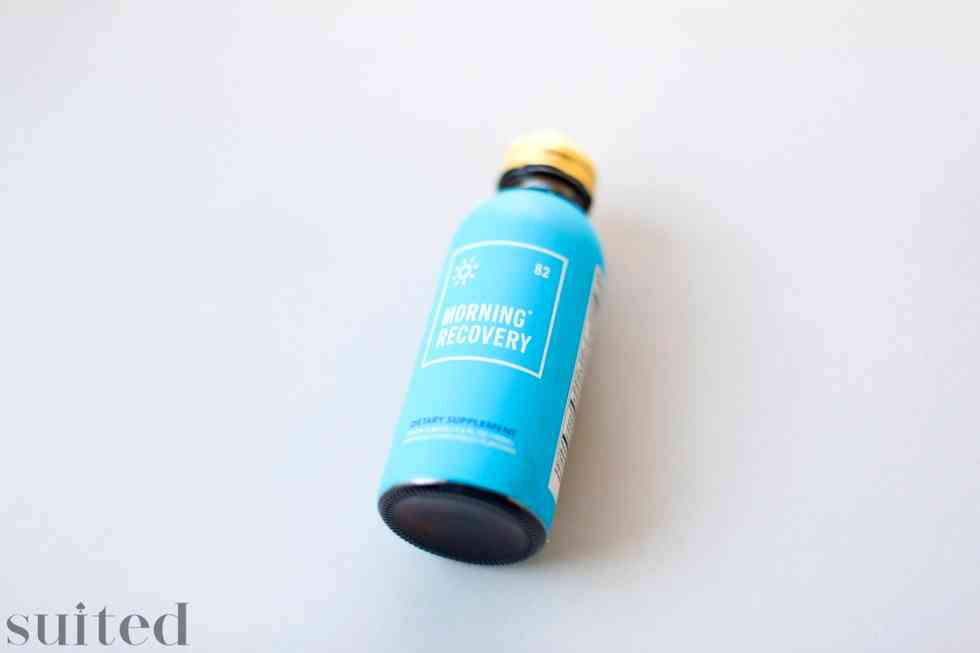
SUITED: How old are you?
LEE: I’m 26, about to be 27. So it gave me that flexibility to say okay, like, I could probably do whatever I wanted now. That included quitting and traveling the world for a while not making any money. It was kind of a good problem to have. So I thought, okay, I could stay at Tesla, and I’m learning a lot, and I’m making x amount of money. Or, I could take this time to go for bigger bets. Which is to own a bigger problem, try something crazier, try something new.
So the idea of wanting to do a startup has been there, not necessarily a hangover drink, but that wanting to try something has always crept up. I quit Tesla to do this, because usually if people are really passionate about something, then that’s why they chose it consciously, so they say “I wanna do this.” I’ve actually be very opposed to that, mainly because I don’t have that passion. I just want to work on really interesting problems, with people I like to work with. So whether or not I work on a beverage company or artificial intelligence, they’re both equally exciting.
SUITED: So Morning Recover vs the product you tried in Korea — are you more science-forward thinking than those products, how does yours stack up, do they have access to ingredients that we don’t, and vice versa?
LEE: So the interesting thing is, when I first started doing the research on this, there are only a couple of ingredients that have some studies behind them and the main thing is called DHM. It can be extracted from a few natural herbs, but the biggest one is an oriental raisin tree. What was kind of crazy is that all of the hangover drinks in Korea have it in it. So I don’t know if they’re aware of DHM, they must be, but they don’t promote it to people. You can actually search for that organic herb, you can can find it in one of the very first pharma encyclopedia — I’m not sure what year it was, the year 600 something — it actually lists the oriental raisin tree as a remedy for hangover. We’re talkin’ before the year 1000. I’m pretty sure they weren’t aware of the DHM or the science behind it, though.
All of our IP is not actually around DHM. You can actually buy DHM in quantity from Amazon. For us, and what we found with our research team is that there’s a technology and method to how you can extract it and purify it, and the efficiency and how it mixes with other ingredients relies heavily on that.
It may seem like a small thing, but it has a big impact. You can grow the plant and herb at home, and you can harvest and boil it, but it you won’t get the same impact.
We also help give you a daily dose of vitamins too, because it isn’t all about the DHM. Alcohol has a cascading effect on your body, robbing you of vitamins as well.
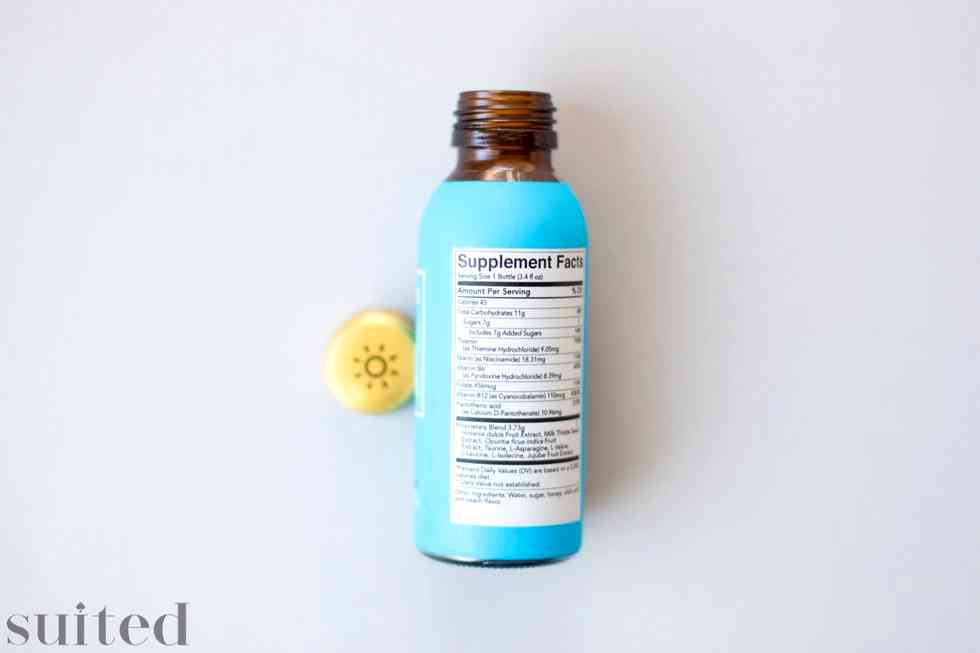
SUITED: So as far as the re-formulation goes, is there there a release date on that?
LEE: Yeah, we’re going to release version 2 by January.
SUITED: Are you going to do another Indiegogo?
LEE: No, most likely not.
SUITED: Last question: what’s the worst drinking experience you’ve ever had?
LEE: Oh God, I’ve had too many. I don’t know if I can answer this. Oh God [laughs]. Well, the first time I blacked out was Frosh week in college. I woke up on a bunkbed of some dorm, and there’s two other dudes on the bed crashed with me, and we’re all confused. Apparently all of our friends still wanted to go out so they dumped us there and walked out.
–––––––––––
So, like I mentioned at the top of this article, Sisun actually gave me some samples of Morning Recovery. One, I gave to my friend Tim as we were attending an Oktoberfest and I was the DD but he was free to get rowdy. It perked him right up on the drive home, and he swears it made him feel incredible between the time he got home and when he ended up going out again that evening.
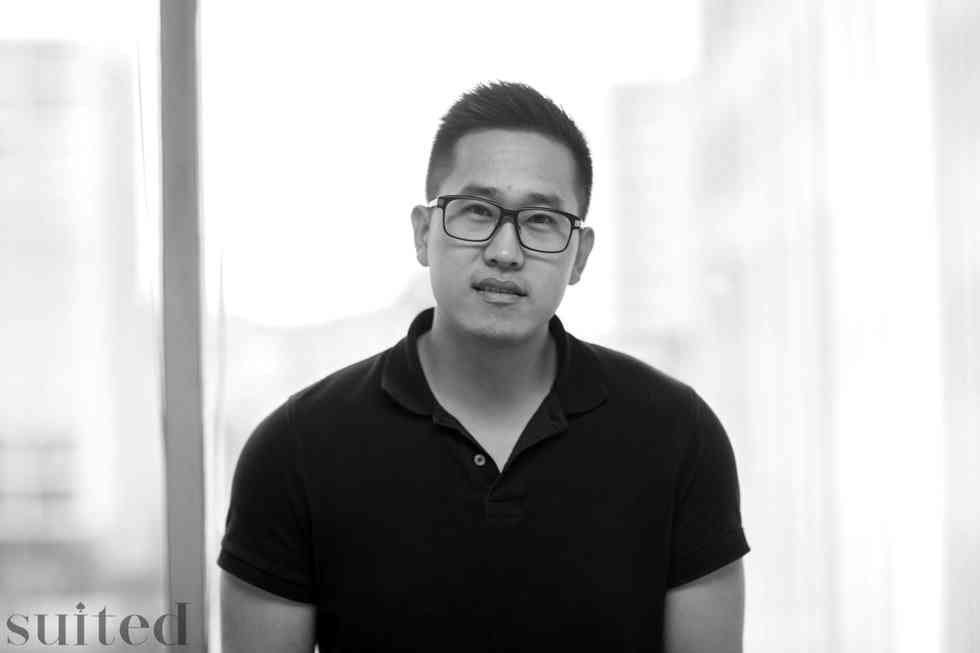
I myself tried it while on vacation a week or so ago. I’m a dad, so it doesn’t take much for me to feel the drinks, and even less for me to feel it in the morning. I woke up feeling just fine when the amount I had to drink would have usually made the morning unbearable.
All bodies are different, though, so there’s probably no way to guarantee it’ll work for everyone. But the amount of people it does work on is staggering. We here at Suited are excited to keep up with the brand, and to hopefully see them reach that elusive FDA approval someday. Maybe we’ll follow up when the formula changes, too.
Big thanks to Sisun and the Morning Recovery team for agreeing to this interview.
And, of course — even if this makes you impervious to hangovers, drink responsibly.
Share this Article
Share this Article